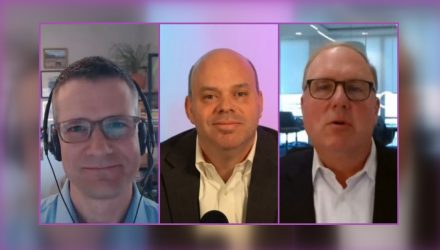With the end of the free money era, fundamentals and management quality matter more now than they did in the 2010s, underscoring the role of active ETFs.
Active ETFs are gathering market share in 2024 as investors recognize the need for quality management in the more challenging current market environment.
“Active is important because it gives managers the ability to look different from the market and generate alpha in different types of market environments,” Ned Durden, chief investment strategist and portfolio manager at WestEnd Advisors, said during VettaFi’s Equity Symposium on March 13.
In the current environment, WestEnd Advisors sees an opportunity for active, driven in large part by a widening of dispersion and returns among sectors. According to Durden, this will happen as investors move past concerns about inflation and rising rates, and really start to refocus on economic fundamentals in a late cycle, slow to moderate economic growth environment.
Active ETFs Use Unique Approaches
WestEnd employs an active process that uses economic data to direct managers to areas of the market they think are benefiting from economic tailwinds. Additionally, this allows the managers to avoid areas that they think will face economic headwinds.
According to Durden, at any one time, the strategy will own four to six sectors out of the 11 sectors included in the S&P 500. Simultaneously, the other sectors will not have any weight in the portfolio. Investors can access this via the VictoryShares WestEnd U.S. Sector ETF (MODL).
“This is a time tested process that we’ve been employing for over 25 years here at West End,” Durden said. “It’s held up in all different types of market environments.”
“We really think a strategy like ours at West End that leverages economic data to direct us to certain sectors of the market while avoiding others all together can both generate alpha and I would say as importantly, or even more importantly, help reduce the risk from passive investing that investors face if economic growth slows,” Durden added.
For more news, information, and analysis, visit VettaFi | ETF Trends.


